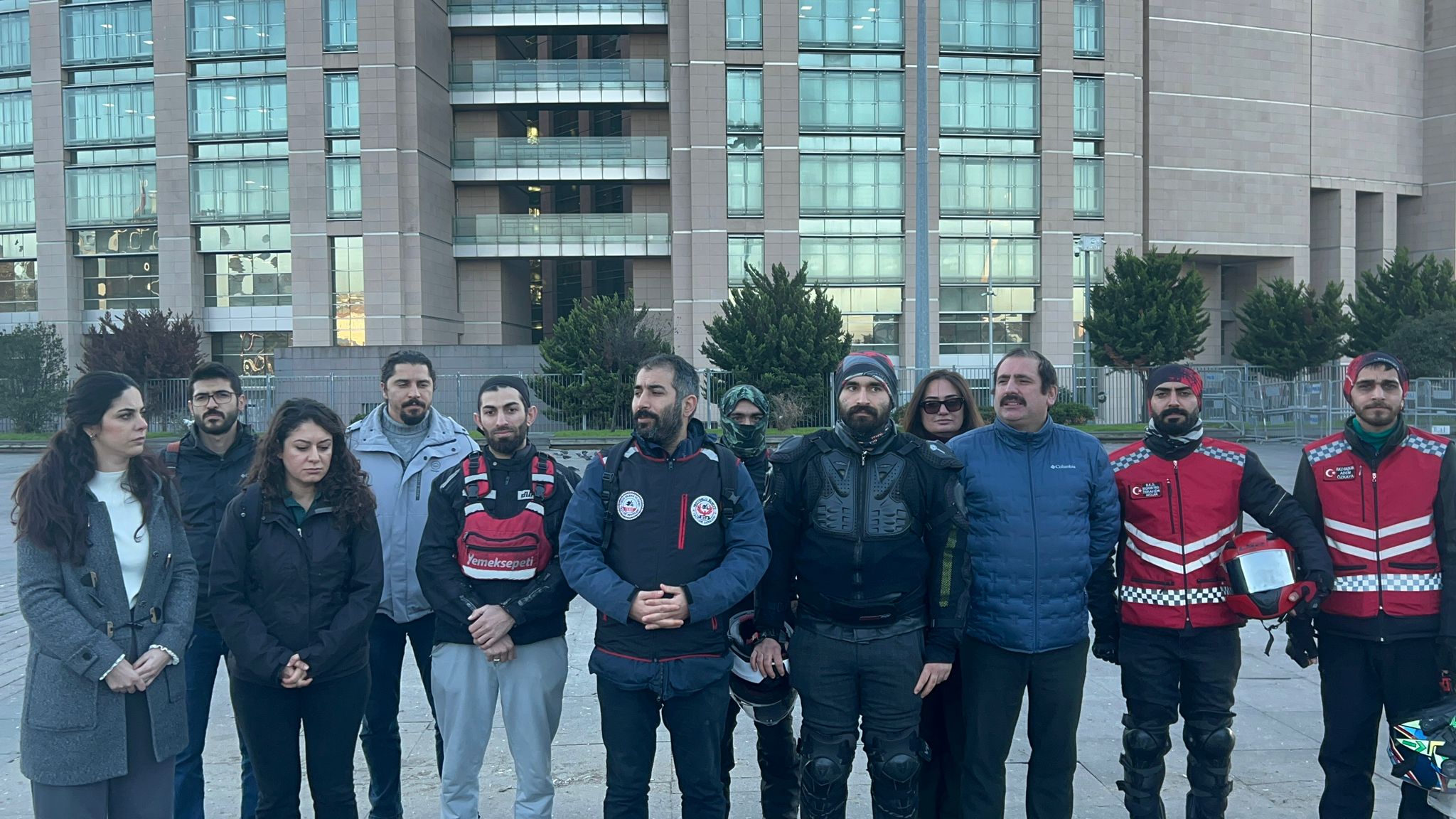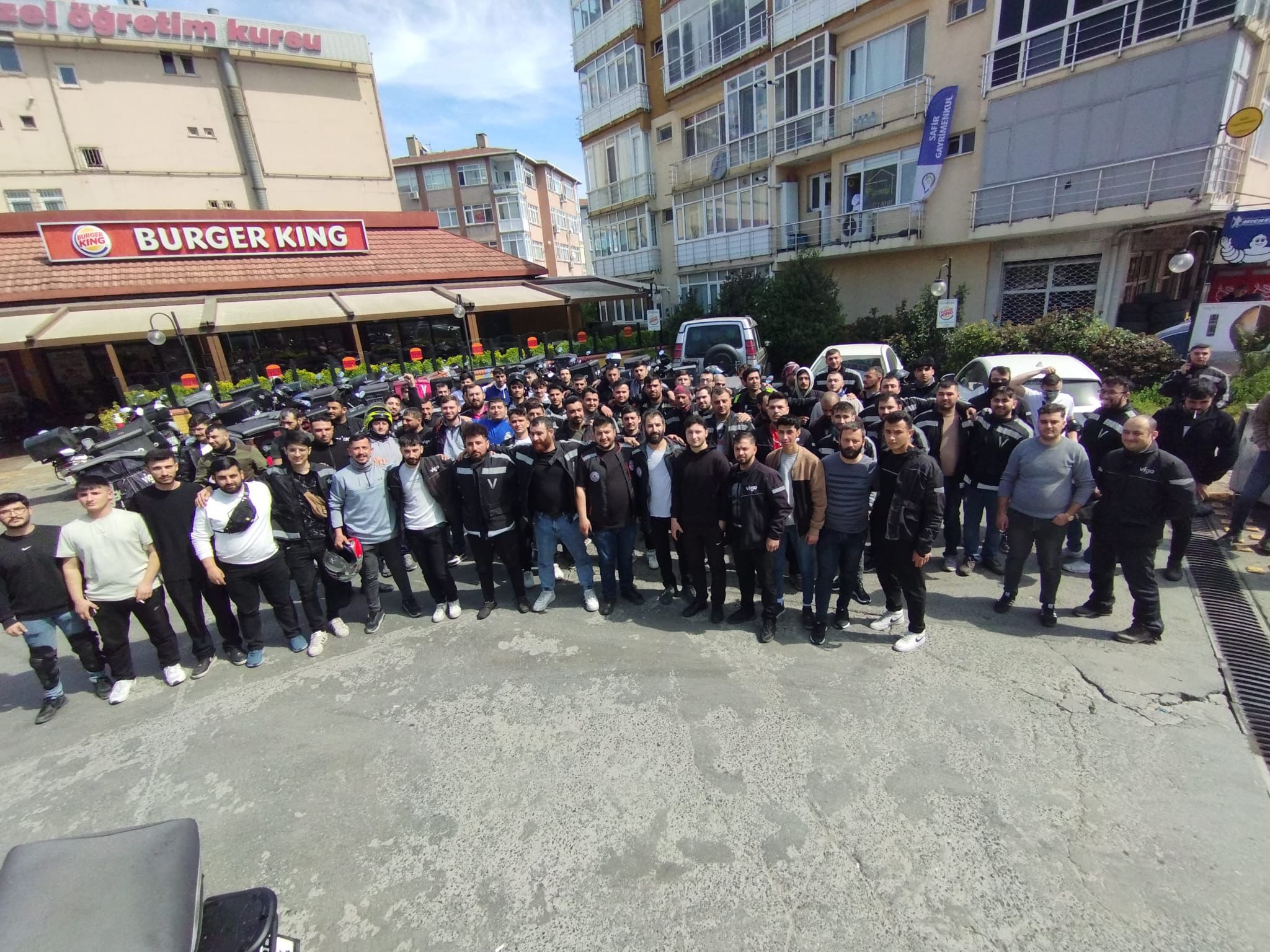
Workshop on “The Platform Economy and the Future of Digital Work” Held in Ankara
The workshop titled “The Platform Economy and the Future of Digital Work”, jointly organized by the International Labour Organization (ILO) Turkey Office and the Ministry of Labour and Social Security, took place this week in Ankara. The event addressed critical issues such as the legal status of digital platform work, job security, and social rights. The demands of couriers—who constitute the largest group within platform workers—were conveyed by trade union representatives.
The workshop was held under the framework of the ILO project “Strengthening the Capacity of Social Partners and Civil Society on Fundamental Principles and Rights at Work.”
TEHİS: “We Represent the Common Demands of Couriers”
At the workshop, the Tourism, Entertainment and Service Workers’ Union (TEHİS) presented the shared demands of various courier organizations. TEHİS emphasized the need for:
• Recognizing self-employed couriers under the legal status of “employees,” ,
• Immediate implementation of occupational health and safety measures,
• Shifting the burden of equipment and gear costs to employers, and
• Establishing effective public monitoring mechanisms.
A TEHİS representative stressed: “The key shortcoming today is that couriers themselves—those working directly in the field—are not at the table. However, we are here to voice their collective demands.”
Key Issues Highlighted
1. Couriers Are Workers, Not Sole Traders The dominant “self-employed courier” model deprives workers of social protection and forces them to cover all risks and costs themselves. Associations and unions argue that this system is in violation of labour laws, as couriers are in practice dependent employees.
2. Occupational Health and Safety Oversight Is Essential Frequent accidents involving motorcycle couriers, inadequate protective gear, and heavy workloads underline the need for strict public inspections. The Ministry of Labour is called upon to establish sector specific monitoring mechanisms.
3. Equipment Costs Must Be Covered by Employers Motorcycles, helmets, jackets, phones, and delivery bags are currently paid for by couriers. Some platforms even sell branded equipment to workers. This practice effectively indebts couriers before they start earning.
4. Legal Definitions and Public Regulation Must Be Strengthened Platform companies should be legally recognized as employers, while income and working hours must be formally recorded. Local authorities should also provide couriers with rest areas and social support services.
Platform Work: A Class Issue, Not Just a Technological One
Drawing on recent European Union regulations on platform work and updated ILO reports, participants highlighted that Turkish legislation lags behind international developments. The following statement was made:
“Digitalization must not be used to establish a new regime of insecurity. Technology should serve to facilitate labour, not undermine it. Platform work is not merely a technical transformation; it also represents a new form of class division.”
Recommendations Regarding the Legal Status of Platform Workers in Turkey
According to data released by the Ministry of Treasury and Finance in June 2024, there are 126,112 registered platform couriers in Turkey. This figure must be verified, updated annually, and shared with the public to enable evidence based policymaking. Given the size of this workforce, ensuring their representation at such workshops is crucial.
Currently, couriers working for platform companies are not entitled to organize in unions or sign collective agreements. Many therefore join courier associations to defend their rights. Unfortunately, despite the workshop announcement stating that key stakeholders from government institutions, employers, worker organizations, and civil society would be invited, courier associations were excluded. For example, representatives of the Courier Rights Association —who actively contributed to earlier training sessions— were not present.
It is concerning that while the ILO emphasizes a tripartite structure of government, employers, and workers, courier associations were excluded, yet chambers representing self employed workers (esnaf) were invited. This exclusion cannot be justified by the notion that only trade unions can represent workers.
The upcoming ILO Conference in June 2025 will discuss regulating platform work within the framework of decent work. A survey circulated to member states, employers’ organizations, and workers’ organizations revealed that two-thirds of member states and almost all workers’ organizations supported a binding convention (backed by recommendations), while almost all employers’ organizations favored only non-binding recommendations. The instruments to be adopted and their content will be debated in detail at the conference.
We ask government representatives here to share their responses to that survey and clarify their approach to this process. Moreover, the European Commission’s Directive of 23 October 2024 (2024/2831) established a presumption of employment for platform workers, recognizing that platforms act as employers and own the means of production. Will similar legislation be implemented in Turkey?
Before presenting our demands, we wish to express our appreciation for recent measures, such as classifying courier work as “hazardous,” and abolishing strict delivery time requirements. These steps are of great significance, and we thank all those involved on behalf of the courier community.
DEMANDS
A. COURRIERS ARE EMPLOYEES
1. The current self-employed courier model is not in workers’ best interests, as almost all courier representatives and individual couriers have recognized. The overwhelming demand is for employee status under the Social Security Institution (SGK). The existing model traps workers in insecurity and debt.
2. Even if employee status is not granted immediately, platform work must comply with core ILO conventions. This includes guaranteeing the right to organize, collective bargaining, equal pay, non discrimination, banning child labour, ensuring occupational health and safety, and requiring employers to cover private health insurance.
B. OCCUPATIONAL HEALTH AND SAFETY
3. Courier activities must be included in the Labour Inspection Board’s official inspection programs.
4. Any accident or fatality occurring from the time a courier begins work until returning home must be classified as a work accident or occupational homicide, with full liability resting on employers. Compensation must be paid to the families of victims.
5. While classifying motorcycle couriering as “hazardous work” is a positive step, all such decisions must be transparently communicated to the public, with justifications provided. According to Courier Rights Association reports, at least 58 couriers died in 2022, 68 in 2023, 63 in 2024, and 27 so far in 2025—deaths often disguised as traffic accidents. Thousands more have been injured. This proves that motorcycle couriering must be recgnized as “very hazardous work.”
C. EQUIPMENT, GEAR, AND WORKING CONDITIONS
6. Employers must provide high-quality protective equipment, subject to regular official inspections.
7. Standards and pricing regulations for courier equipment must be developed and enforced.
8. Platforms must stop selling branded jackets and bags to couriers, effectively forcing them to advertise for free. Such equipment should be provided free of charge and inspected for quality. 9. Couriers must be provided with rest areas, toilets, and charging stations, as seen in many other countries.
10.All operating costs—fuel, insurance, taxes, meals, internet, and equipment—are currently borne by couriers. Employers must assume responsibility for these expenses, including licensing and certification fees.
D. LEGAL REGULATIONS, DATA TRANSPARENCY, AND DECISION-MAKING
11.Data on courier accidents and fatalities must be published transparently by the Ministry of Labour.
12.Official statistics on the total number of couriers, including platform-based and SGK-registered workers, must be made publicly available.
13.A permanent consultation mechanism should be established to ensure regular dialogue between authorities, unions, associations, and couriers.
14.Online surveys should be conducted to capture the needs and demands of couriers before new regulations are introduced, and feedback channels should be created to assess their impact.
E. RECRUITMENT AND ALGORITHMIC CONTROL
15.Employment contracts must be regulated to prevent unilateral termination by employers and to ensure compliance with basic labour rights.
16.Misleading recruitment advertising by platform companies and influencers must be monitored and penalized. All work-related costs must be disclosed to couriers prior to recruitment.
17.Working hours must be strictly enforced. Many couriers are forced—either contractually or economically—to work 12–16 hours daily, far exceeding the legal weekly limit of 45 hours, leading to accidents and fatalities.
18.The performance-based scoring and algorithmic monitoring systems used by platforms must be regulated. These systems pressure couriers to work faster and longer, directly endangering their safety. Algorithms must be transparent, publicly overseen, and must not result in arbitrary account suspensions or dismissals.
CONCLUSION
The greatest imbalance between couriers and platform companies arises from the fact that couriers are not recognized as employees. The demands outlined above converge on the need to regulate working hours, provide equipment and social security, and ensure safe and secure working conditions.
The first and most crucial step toward guaranteeing couriers a secure livelihood is the recognition of couriers as employees. Even if this cannot be achieved immediately, adopting our specific demands would help reduce existing inequalities. Each step taken in this direction will pave the way toward recognizing couriers as workers under the law.
Bir Cevap Yazın
E-posta hesabınız yayımlanmayacak. Gerekli alanlar * ile işaretlenmişlerdir
.png)












n0w0cp
wwjjx6
waz9cp
waz9cp
3720by
sreeno
dnj3iv